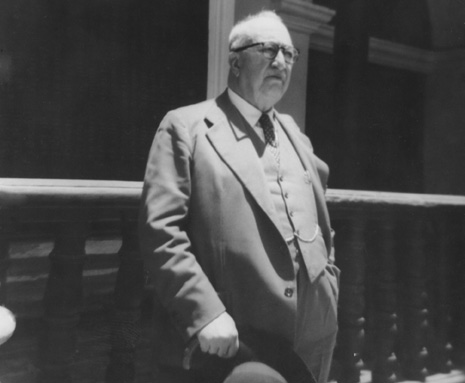| |
Hotel Meurice
228 Rue de Rivoli
Paris
December 12, 1953
Esteemed Dr. Le Roy
I received your letter and the copy of the Act of the Council of Government
of the Revolution. The delay is attributed to my wonderings around the
world like an errant Christian, and that my letters (those which I receive)
follow me with even greater movement.
I could answer your question easily if in the Revolution I would have
received a single official document from the Council of Government. Not
a single one reached my hands, in spite of having attended multiple courts-martial.
For several months I had a small book that contained general laws; later,
having lost it during a bellicose action, I was aided by another copy
owned by Enrique Villuendas.
But this document that you send me or any other that deals with the pardon
of those presented, if it ever existed, did not reach my hands, neither
during the Bermúdez trial nor afterwards.
Now, why, in My Relations with Máximo Gómez, do I reference
a general pardon given by the Council of Government (or the Government
as we called it then)? Because General Máximo Gómez proclaimed
it before the joint troops, and General José M. Gómez circulated
the news in Sancti Spíritus. Also because many of those pardoned
returned to the forces of the first division of the Fourth Corps, of
which I was a part, without anything being done to them. And in a special
manner came one who had been a Colonel, whom I believe is still alive,
a brave one, as a matter of fact. I do not mention his name because I
hold him in high esteem. He asked before coming if he would be admitted.
But all of this would not have been sufficient, nor would I have remembered
it, if the entire process (I do not know whether the written or unwritten
one) had not turned on this pardon nor on the revolutionary reality of
the time had there not been a general pardon, and Gen. Bermudez kills
one pardoned that he finds on the road or anywhere, no process of any
type is carried out. When I spoke with Bermúdez, he alleged the
point that it involved a traitor, and I replied that, yes, but a pardoned
one.
I do not recall the written process, but, I repeat that what was written
circulated little; and if in the process the murder is highlighted, simply
for having killed a man, without both principal extremes, if the pardoned
had been invited to return to the files, it was for imposed reasons,
probably, by the next victory, which demanded a good image that revolutionaries
do not always have at the dangerous hour. I hope that you are satisfied.
Always yours with all consideration.
Orestes Ferrara
|
|
